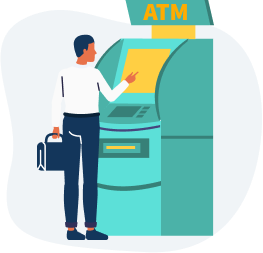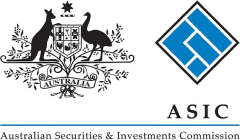Currency in Cambodia
A Travel Money Guide to Cambodia
Whilst in Cambodia, most tourists visit the stunning archaeological sites of Angkor Wat or go on breathtaking adventures on bikes, in kayaks or on foot. To get the most out of your trip, it’s a good idea to learn everything you can about the local currency and payment options before you go.
The 2 currencies used in Cambodia
Cambodia has an unofficial dual currency system. Both the US dollars and the Cambodian Riel are accepted and used widely in Cambodia. The exchange rate of KHR to USD is pegged at 4000 Riel to 1 USD. For small purchases you normally receive Riel as change and for most purchases people use US instead.
The official currency used in Cambodia is the Riel and is represented by the symbol ៛. The international code for the Cambodian Riel is KHR. The Cambodian banknotes has 11 denominations: ៛50, ៛100, ៛200, ៛500, ៛1000, ៛2000, ៛5000, ៛10000, ៛20000, ៛50000 and ៛100000.

Using Your Bank Card in Cambodia
Most Cambodian businesses are well set up to receive card payments. Some of the best travel money cards include debit, credit and prepaid cards. International credit and debit cards are widely accepted, as long as they have a four-digit PIN.
It’s important to know about dynamic currency conversion (DCC) when using a bank card abroad. DCC is where the credit card processor, such as a shop or hotel, converts the currency and charges you in your home currency rather than Cambodian Riels.
You’ll typically be asked how you’d like to be charged – in every case, choose Cambodian Riels. Otherwise, you may end up paying additional fees for the service, alongside the other bank fees.
Debit Cards
You’ll probably want a debit card if you plan to withdraw money from an ATM. While you may also be able to pay with a debit card in some businesses in the major destinations, you might discover some hefty fees on your account summary.
Depending on your bank, you could be hit with fees for foreign ATM withdrawals or currency conversions. But some banks are better than others; we recommend checking out Wise, ING and Revolut, all of which have travel-friendly debit cards that waive these charges.


Credit Cards
Credit cards can come with some enticing perks, including added security, loyalty programs, and even free travel insurance.
But are they worth it?
Major local businesses, including hotels, restaurants, airline offices, and department stores, accept credit cards. But you might have to pay a surcharge.
Mastercard and Visa are widely accepted. You may also be able to use your American Express card, though local ATMs won’t accept them.
Just be aware of additional charges you may incur for foreign transactions. These could include:
- International transaction fees
- High exchange rate margins
- ATM fees
- Potential ‘cash advance fees’ if you use an ATM
If you still prefer credit cards over any other payment, consider going with a company that offers cards that waive certain travel fees. Bankwest Platinum and 28 Degrees both have travel-friendly cards.
Prepaid Travel Cards
The biggest advantages of prepaid travel cards are that you can lock in a favourable exchange rate. You also get a handy back-up card.
Just remember that while they are convenient, you could end up paying a long list of hidden fees. Many travel cards still impose:
- Currency conversion fees
- Uncompetitive exchange rates
- International ATM withdrawal fees
- Initial load fees
- Reload fees
- Inactivity fees

How to Buy Riel Before You Go
There’s a certain reassurance that comes with stepping off the plane (or cruise ship) already cashed up with Riel.
Buying Riel before you leave Australian shores isn’t just convenient. It can also save you money. But it all depends on where you get your Riel in Australia. There are three main options:
- Buy KHR online and have it delivered or collect it in-store
- Swap Cambodian currency for Australian dollars from a money changer
- Buy Cambodian Riel at your home airport
Try S Money or a similar online currency exchange store to get rates that reflect the comparisons you see on XE or Google.
If you choose online delivery or in-store pickup, check the processing time. Some exchange companies with online options suggest you allow between two and five days to process currency.
Prefer in-store currency exchange? Head to the CBD of your nearest city for the most competitive exchange rates; suburban bureau de change outlets tend to have poorer rates and fees.
Currency exchange counters in Australia’s airports are infamous for their atrocious exchange rates. Avoid them if you can.
How Much Cash Should I Bring to Cambodia?
Thanks to the surplus of ATMs and the ease of plastic payments, there’s not too much pressure on you to bring the exact amount of cash you need from the get-go.
Still, it’s a good idea to have a general daily budget to help you cost out the trip and make sure you don’t have leftover loonies at the end of your stay.
The average daily travel budget in Cambodia is about $50. Some of the expenses you might be looking at include:

$30 per night
A double room in a hotel

$10
A meal at a restaurant

$1
A local beer

$2
A one-way public transport ticket

$12
Entrance ticket to a show or exhibit
How to Exchange Currency in Cambodia
Places like Phnom Penh, and Siem Reap receive great numbers of tourists, so there are facilities to cater to money exchanges. Beyond these major destinations, it’s best to get cash before you venture into remote territory.
The 3 most popular ways to exchange currency in Cambodia including using ATMs, currency exchange offices, or travellers cheques.

ATMs
ANZ, Canadia bank and Acleda bank all offer ATM’s throughout Cambodia. In addition there are ATMs at the airport and popular destinations, making things extra easy. ATM mainly dispense US dollars. It is advised cover your hand when punching your 4 digit pin to prevent skimming.
Depending on your bank, you may have to pay for overseas ATM withdrawals of $4-$6 and currency conversions. To reduce the amount you’ll pay in fees, try to withdraw just the right amount of money you’ll need for the duration of your trip.
Don’t forget: Let your bank know you’re travelling! If they detect a foreign transaction but aren’t aware you’re overseas, they could end up freezing your card.
Currency Exchange in Cambodia
You won’t have any problem changing money in the city. There are plenty of money exchangers on the main roads of larger cities.
Licensed money changers tend to offer marginally better rates than banks as many banks charge flat fees per transaction. Also, banks only exchange currencies on weekdays.
Most money changers are stand alone business and not part of a chain.


Travellers Cheques
Not worth the bother! Travellers cheques are so outdated, very few banks even accept them any more.
They can’t be used as direct payment, so the only way to use them once you’re in the country is to swap them for currency at a bank or money exchange office. Even then, very few banks will accept travellers cheques if you don’t have an account with them. And exchange services apply exorbitant fees and rates to them.


